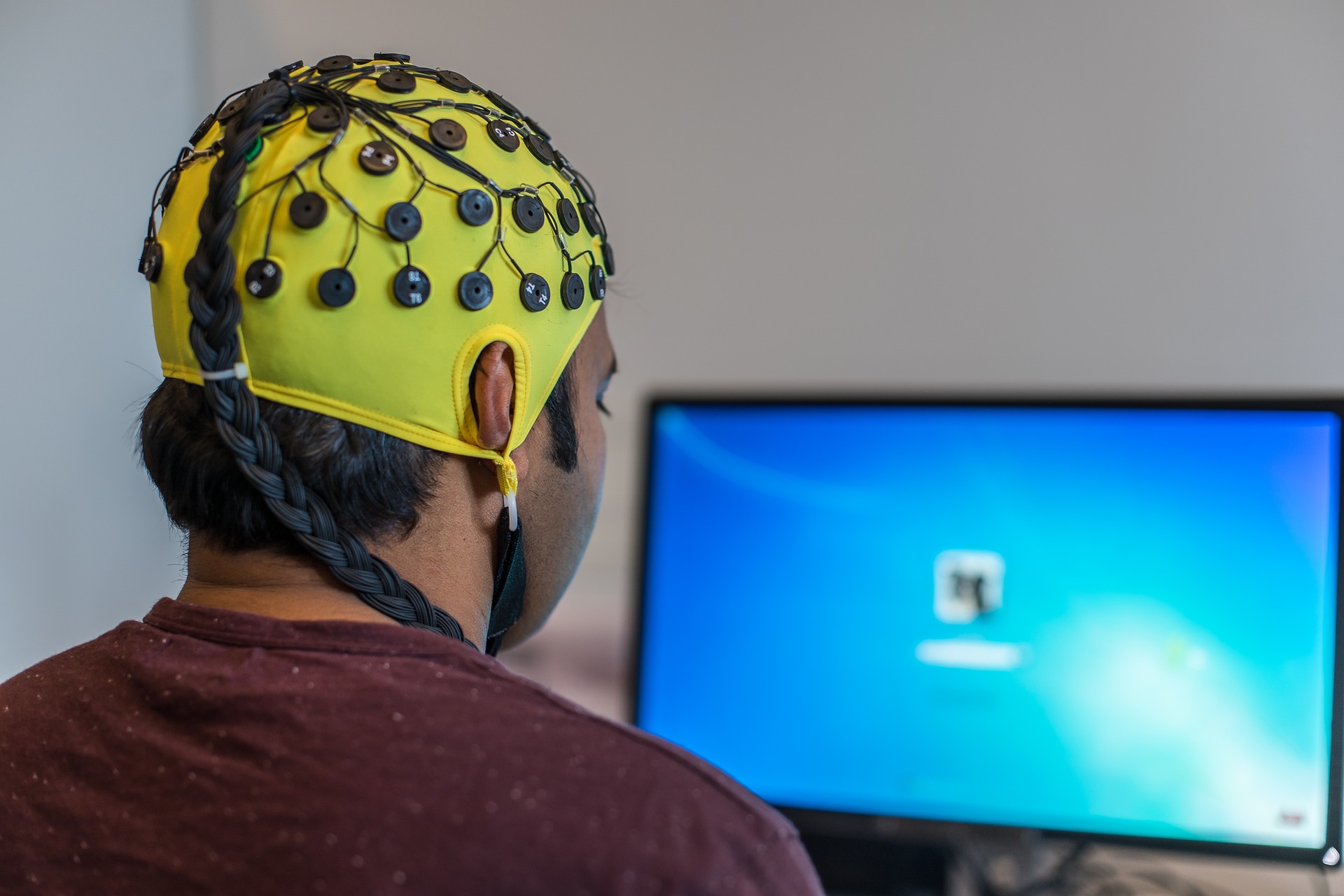By Liza Olkhova

Anhedonia, or an inability to experience pleasure, is a prominent feature of anxiety and depression. It is a failure to seek rewards by avoiding anxiety-inducing activities or to modulate one’s behaviour according to rewards. Hence, susceptible individuals become less responsive to reward. Interestingly, it is possible to measure an individual’s response to receiving a reward, known as reward positivity, via electroencephalography (EEG) – a non-invasive method of measuring brain activity. An inverse relationship between reward positivity and depression symptoms has been reported by some studies.
The first study to look at linking reward positivity and patients’ responsiveness to either anti-depressants (in this case, selective serotonin reuptake inhibitors, or SSRIs) or cognitive behavioural therapy (CBT) was a publication by Burkhouse and colleagues. These two treatments are considered to be the gold-standard in depression: one pharmacological, which increases serotonin levels in synapses and is believed to elevate mood, and one, CBT, a method of talk therapy. However, many patients with depression do not improve their symptoms following either of these therapies and often develop unpleasant side-effects with SSRIs.
Authors of the study asked the simple question of whether the baseline reward positivity (measured before the treatment onset) would predict the symptom lessening following the 12-week treatment with either SSRIs or the CBT. The second question was whether the difference between post- and pre-treatment reward positivity would correlate to a reduction in depressive symptoms. To measure reward positivity, participants were asked to choose one out of two doors in the computer task, a guessing game in which you either gain or lose money depending on the decision made.
The results have established the positive relationship between reward positivity and improvement of depressive symptoms. Reward positivity seems to also emerge as an objective neurophysiological predictor of responsiveness to the SSRI treatment, but not to CBT, using EEG. Authors have found that an attenuated reward positivity signal predicts reduction of symptoms in patients with depression.
This EEG method has promising potential as an objective predictor of anti-depressant therapy and a marker of treatment efficacy. Moreover, it is readily available in clinical settings and has advantages over the subjective depression rating scales that are used in the majority of clinical trials, but are highly subject to placebo effects.
Please head over to https://www.psychiatrist.com/JCP/article/Pages/2018/v79/17m11836.aspx to read the original study.